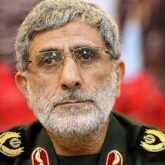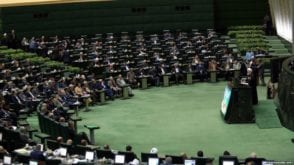schengenvisainfo – Belgium’s Prime Minister Alexander De Croo and the Minister of Foreign Affairs Hadja Lahbib were questioned by lawmakers earlier this week following the Iran visa scandal.
Belgium granted visas for delegations from Iranian and Russian cities to attend a mayors’ convention that was held this week, raising concerns and pushing the authorities to investigate the case, SchengenVisaInfo.com reports.
According to Reuters, Minister Lahbib is especially facing scrutiny for granting visas to citizens of Iran and Russia, which are currently under international sanction, only after a mere three weeks after the release of Olivier Vandecasteele, a Belgian NGO employee, from imprisonment in Iran.
In their response, PM De Croo and Minister Lahbib said that they were not willing to risk the diplomatic row with Iran, particularly in light of the release of Vandecasteele and three other citizens of the EU.
However, lawmakers from both opposition and coalition parties challenged the validity of this justification, saying that the visas should not have been issued to citizens of these two countries.
Reuters explains that during their stay in Brussels, the Iranian delegation filmed Darya Safai, who is a Belgo-Iranian lawmaker, as well as Iranian opposition members.
Safai was a prominent activist in Iran before she fled to Belgium in 2000 and said that she no longer felt safe in the country.
Following such events and the issuance of visas for citizens of the two countries, the opposition has required that Minister Lahbib resigns. On the other hand, the extreme-right opposition party Vlams Belang has called for Prime Minister De Croo to resign.
As for the state secretary for external relations of the Brussels government, Pascal Smet, Reuters said that he resigned last week over the all-expenses paid trip.
Currently, the EU applies sanctions to tens of Iranians for human rights violations, with the Council of the EU imposing restrictive measures on an additional five people as well as two entities in late May of this year.
In line with the EU’s eighth package of sanctions for human rights violations, restrictive measures apply to 216 Iranian individuals and 37 entities.
All those that are part of the sanction list are subject to an asset freeze. Moreover, they are also subject to a travel ban to the EU, meaning that they are prohibited from entering or transiting through the Member States.
Iranian individuals and entities placed on the sanction list are also not able to require EU citizens to make funds or any other resources available to them.
 Shabtabnews In this dark night, I have lost my way – Arise from a corner, oh you the star of guidance.
Shabtabnews In this dark night, I have lost my way – Arise from a corner, oh you the star of guidance.



